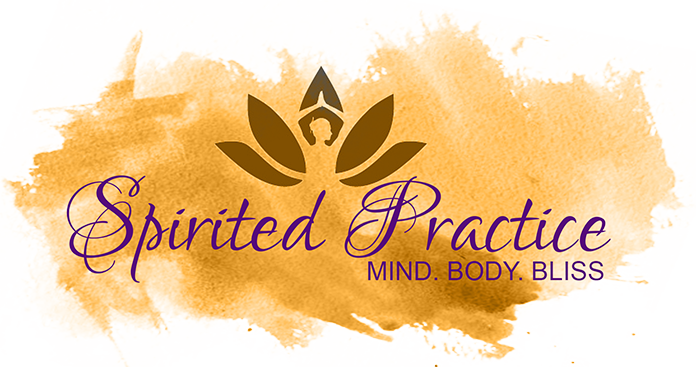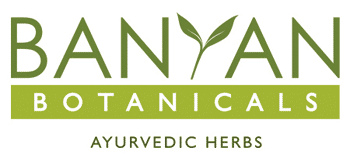Herbs take on a supportive role when working with bladder and abdominal organ prolapse. Herbal remedies can be used to prevent or treat infection, bring increased circulation to the area and to help tone and vitalize lax genitourinary organs. Herbs can also be used to support hormonal health especially for postmenopausal women and those in their childbearing year.
The herbs I reach for the most when working with abdominal organ prolapse and bladder prolapse are:
Our Lady’s Mantle (Alchemilla vulgaris)
One of my favorite women’s herbs. Lady’s Mantle is an astringent and anti-inflammatory herb with an affinity to the reproductive and genitourinary system. Its use is known to tone, strengthen and rejuvenate hollow organs in the body, including the bladder, colon and uterus. It has a strong reputation as a women’s rejuvenative herb and seems especially useful when there has been trauma to the pelvic organs.

Partridge Berry (Mitchella repens)
With an affinity to the urinary and reproductive systems, Partridge Berry is often used when there is loss of tone in the bladder. It is also used when there is difficulty urinating with a feeling of fullness and for treating urinary infections. Partridge Berry is historically used as a women’s herb. It has been used for 100’s of years to support, tonify and increase the function of the vagina and uterus.

Blue Cohosh (Caulophllum thalictoides)
Indicated for abdominal organ prolapse, Blue Cohosh has an ability to increase the tone of lax abdominal organs and the uterus. It is especially useful when there is a heavy deep aching feeling in the legs and pelvis. Blue Cohosh may be helpful with mild pelvic inflammation and a dragging sensation in the pelvis. Small frequent doses are best.
Red Raspberry (Rubus idaus)
Strengthens the reproductive and urinary systems. Red Raspberry Increases fertility and tones and strengthens the uterus and bladder. It is also used to address frequent urination and bed wetting. Plus, it’s packed with tons of vitamins and minerals. Red Raspberry leaves are best used in an infusion (a long steeped tea).

False Unicorn Root (Helonias dioica or Chamaelirium leteum)
This herb is a powerfully rejuvenating herb for the genitourinary system and a powerful women’s herb. It has long been used to balance and harmonize hormonal levels, tone the tissues, abdominal organs and much more. This plant is on the Plant Savers list as an endangered species and should only be used in small amounts as a synergist to the formula. It’s use is especially indicated when there is a heavy dragging sensation in the pelvic girdle with irritability and snappiness.
Horsetail (Equistetum arvense)
Supports regeneration and growth of bone and connective tissue. Useful for anything related to bone, connective tissue, nails, hair, skin and tooth repair, regeneration and regrowth. Horsetail has an affinity to the urinary bladder and is useful in UTI formulas. To get the full benefits for connective tissue regeneration, steep the herb in hot water for a minimum of 20 minutes.

True Solomon’s Seal (Polygonatum biflorum)
A wonderful suggestion from my friend and fellow herbalist Naava Koenigsberg of Bear Creek Herbs is Silver City NM. We agree that Solomon’s Seal has a remarkable ability to restore the proper tension to ligaments, regardless of whether they need to be tightened or loosened. That, along with its tonifying effect on the reproductive system makes Solomon’s Seal a thoughtworthy choice for our prolapse formula.

Mullein Root (Verbascum thapsus)
The root of the Mullein plant strengthens and supports the musculature of the urinary system and pelvic floor. It is often used for inflammation of the prostate and for urinary incontinence caused by an overly relaxed urinary sphincter.

Damiana (Turna diffusa)
Damiana is an adaptagenic herb, (meaning that it helps the body and mind deal with stress). It has an affinity to the urinary, reproductive and central nervous systems. Damiana helps tone urinary, reproductive, digestive, and respiratory organs and elements. It is further used to treat chronic urinary infections, incontinence, and prostatitis. Damiana is best taken for a limited time only. If you like this herb, try adding it to your formula for 2 weeks. Then take a 3 to 5-day break before adding it again.

Recipes
Prolapse Support Tea
Designed to support the structure and stability of the pelvic region and pelvic floor:
Mix dry herbs
- 2-parts Our Lady’s Mantle
- 2-parts Partridge Berry
- 1-part Damiana
- 1-part Red Raspberry Leaves
- 1-part Horsetail
Directions
Mix dry herbs together and store in an airtight jar in a dark place
To prepare the tea
- Place 2 oz herbs in 16 oz boiling water
- Cover and let steep for at least 20 min
- Strain Herbs
- Add water to correct liquid loss and maintain 16 oz. Drink 1/2 cup 4 times per day
For more information on making herbal teas and infusions click here.
Prolapse Support Extract
Mix individually formulated tinctures or liquid extracts.
- 1-part Partridge Berry
- 1-part Blue Cohosh
- 1-part Mullein Root
- 1-part True Solomon’s Seal
- ¼ part False Unicorn Root
Suggested Dose – 10 drops 4x per day for 1-2 weeks. If no progress is noticed, increase the dose to 30 drops 3x per day.
The Formulas above are available at Wonderment Gardens LLC where each tincture and tincture product is individually formulated to fit your needs. For more information or to order the formulas (or individual tinctures above) contact Annie Jones and Wonderment Gardens.
As a certified yoga therapist with the International Association for Yoga Therapists (IAYT), I am happy to help develop an appropriate and useful yoga therapy practice for this or any condition. Click here to talk to Annie about setting up a consultation.
Click here to visit the IAYT website to find a certified yoga therapist in your area.


Thank you so much
But please can nursing mummy use the recipes
And can we use both the 2 recipes at the same time??
Thank you so much for helping
Thank you for your question. Most of the herbs listed are NOT for pregnant or nursing women especially in the recipes I present. Of all the herbs mentioned, only raspberry leaf is safe for pregnant or nursing women. I suggest working with a certified herbalist for the appropriate herbs.
The herbs and recipes I offer in this post are specifically for uterine and/or bladder prolapse.
Where can I get these combinations? I clicked on the contact Annie Jones link but it goes nowhere:/
I’m sorry her link is not working. I buy my herbs from a local health store. You may need to do some searching around to find them.
Please can we use both the prolapse support extract recipe and the prop ales support tea at the same time
And how long can we use it
I would not recommend using them at the same time. You won’t know how your body is responding to each one.
How do I order? The link posted to order goes to a blank screen:( I’d love to get tinctures of these herbs as I just discovered pelvic prolapse 2 weeks ago and am devastated!
I’m sorry that you’re having to experience pelvic prolapse. When I cannot find something I need, I usually make it myself, but not everyone has the time or knowledge to do so. I will check to see what I can find, but I encourage you to do some searching on your own and see what you find.
Hello – very informative, thank you. I would like to prepare the Prolapse Support Tea. Hoping it will help in menopause. Can you recommend a trusted source where I can purchase these herbs?
You are welcome. Because my trusted source is no longer doing business, I don’t have any recommendations. I typically find my herbs at my local health store or pick them myself.
Please my questions are
1-Please what will we avoid when using the herbs??
2-And can we use pessary when using the herbs
3-how long should we use the tincture herb